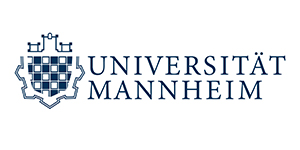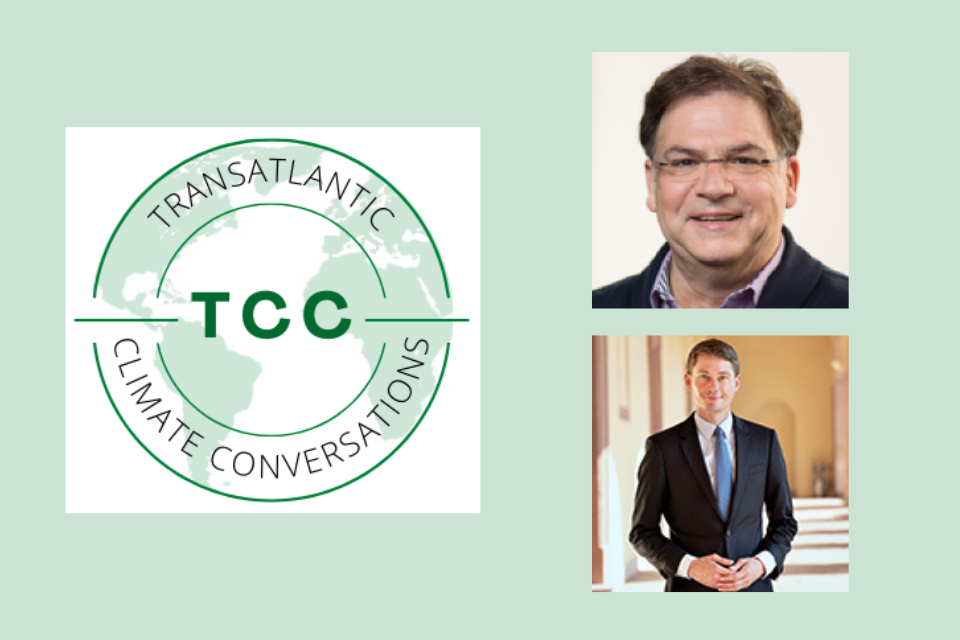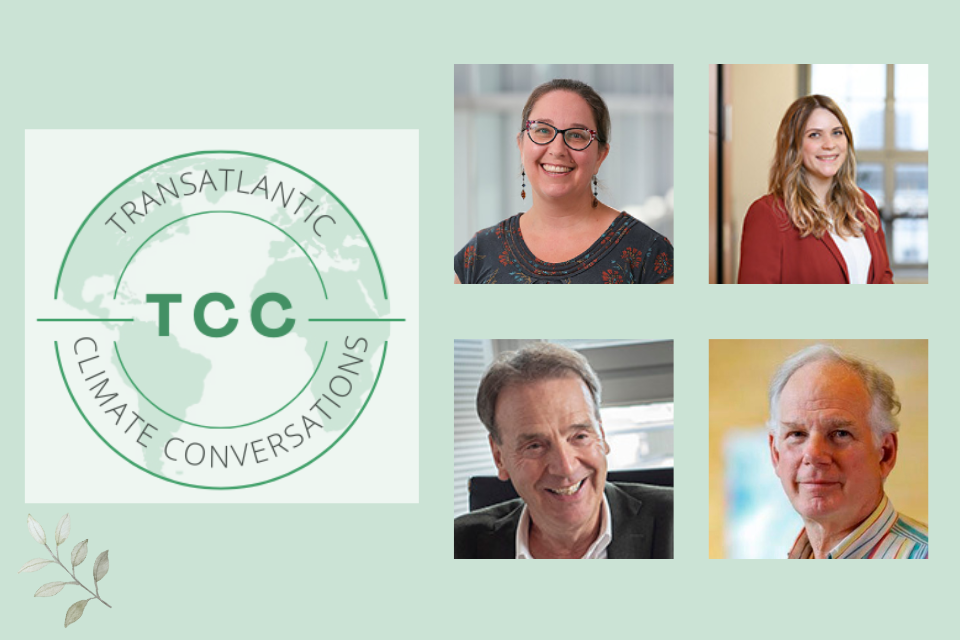Transatlantic Climate Conversations
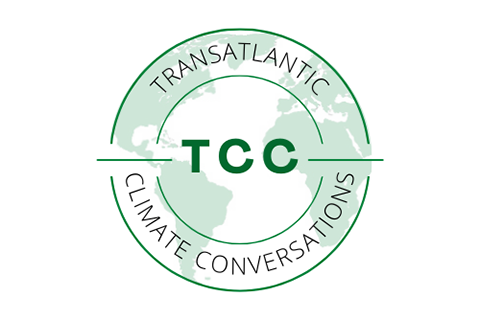 In cooperation with the University of Mannheim, Germany, CGES Brandeis presents Transatlantic Climate Conversations (TCC).
In cooperation with the University of Mannheim, Germany, CGES Brandeis presents Transatlantic Climate Conversations (TCC).
Why are we doing this? When it comes to addressing the climate crisis, we know that a lot will have to change dramatically and fast. In this new series, we want to provide an opportunity for scholars on both sides of the Atlantic to engage with each other informally to learn from each other, share information/best practices/new insights and also discuss ongoing questions/research about how we must address the climate and sustainability crisis. We want to take a critical look at the status quo, but we are also looking for some hope - so we want to hear from people who care, who are trying to do better. Not only our students - we all need to hear more of that.
Transatlantic Climate Conversations (TCC) were initiated and are prepared and facilitated by Sabine von Mering (Director of CGES at Brandeis University) and Prof. Dr. Annette Kehnel (Vice President for Student Affairs and Teaching at the University of Mannheim).
Co-sponsored by the Brandeis Year of Climate Action (YOCA).
Climate Change and Business: Sustainable Alliances and Sustainable Operations
Thursday, March 16, 2023
12 - 1:30 pm ET (17:00 - 18:30 CET)
Zoom Webinar
About the Event
For our first Transatlantic Climate Conversation we brought together two Business professors to discuss how they view what's happening in their field: What new developments do you find promising and exciting? What is changing? What still needs to change? How can we accelerate the change? What can universities contribute to the just transition to a better future for all?"
About the Speakers
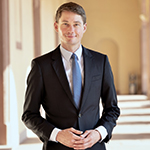 Christoph Bode is a full professor at the Business School of the University of Mannheim and holds the Endowed Chair of Procurement. He obtained his Ph.D. from WHU - Otto Beisheim School of Management (Germany) and his Habilitation from the Swiss Federal Institute of Technology (ETH) Zurich. He holds a master's degree in business engineering (Dipl.-Wi.-Ing.) from the University of Karlsruhe (TH) (Germany) and master's degrees in industrial engineering (ingénieur génie industriel) and in management (master de recherche) from the Grenoble Institute of Technology (INPG) (France).
Christoph Bode is a full professor at the Business School of the University of Mannheim and holds the Endowed Chair of Procurement. He obtained his Ph.D. from WHU - Otto Beisheim School of Management (Germany) and his Habilitation from the Swiss Federal Institute of Technology (ETH) Zurich. He holds a master's degree in business engineering (Dipl.-Wi.-Ing.) from the University of Karlsruhe (TH) (Germany) and master's degrees in industrial engineering (ingénieur génie industriel) and in management (master de recherche) from the Grenoble Institute of Technology (INPG) (France).
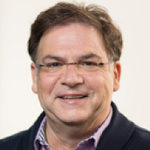 Ben Gomes-Casseres is the Peter A. Petri Professor of Business and Society and launched the Business of Climate Change initiative at Brandeis International Business School. He is an authority on alliance strategy and management. He has researched this topic for 30 years, taught it to MBAs and executives and consulted with major companies worldwide. At Brandeis, Ben teaches courses on business strategy, and previously directed the MBA Program and the Asper Center for Global Entrepreneurship. Before coming to Brandeis, he served a decade on the faculty of the Harvard Business School; before that, he was an economist at the World Bank. His work is at www.remixstrategy.com
Ben Gomes-Casseres is the Peter A. Petri Professor of Business and Society and launched the Business of Climate Change initiative at Brandeis International Business School. He is an authority on alliance strategy and management. He has researched this topic for 30 years, taught it to MBAs and executives and consulted with major companies worldwide. At Brandeis, Ben teaches courses on business strategy, and previously directed the MBA Program and the Asper Center for Global Entrepreneurship. Before coming to Brandeis, he served a decade on the faculty of the Harvard Business School; before that, he was an economist at the World Bank. His work is at www.remixstrategy.com
Energy Systems: When Ocean Meets Public Transport
Thursday, April 27, 2023
12 - 1:30 pm EST (18:00 - 19:30 CET)
Zoom Webinar
Please register to receive the Zoom link for the webinar.
About the Event
How do we study the climate crisis? In this second TCC an oceanographer and climate scientist is joined by a researcher who studies how bus routes in cities can be efficiently decarbonized. The ocean that covers seventy percent of the earth’s surface is a gigantic energy system, and in order to learn more about how the climate is changing we have to understand the connection between how water moves and mixes in the ocean and global processes like El Niño and climate change. Zero-emissions public transport in our cities will be key to addressing the climate crisis, but cost is a major factor. Are electric buses sufficient to cover the whole demand, or are hydrogen buses more suitable for some routes? What is the optimal composition of different zero-emission vehicles in a vehicle fleet?
About the Speakers
 Katrin Gschwind is a doctoral student at the Mannheim Institute for Sustainable Energy Studies, situated within the University of Mannheim. Her research focuses on the economic implications of alternative decarbonization strategies, with a specific emphasis on assessing the competitiveness of alternative drivetrain technologies in heavy-duty road transport. Through her research, she aims to generate insights that advance sustainable energy usage and accelerate the transition to net-zero emissions.
Katrin Gschwind is a doctoral student at the Mannheim Institute for Sustainable Energy Studies, situated within the University of Mannheim. Her research focuses on the economic implications of alternative decarbonization strategies, with a specific emphasis on assessing the competitiveness of alternative drivetrain technologies in heavy-duty road transport. Through her research, she aims to generate insights that advance sustainable energy usage and accelerate the transition to net-zero emissions.
 Sally Warner is a physical oceanographer who studies how water moves and mixes in the ocean. She is particularly interested in connecting the small, fast motions of turbulence to decadal-scale, global processes like El Niño and climate change. She has spent many months living and working on oceanographic research vessels in places like the equatorial Pacific Ocean and the Gulf of Mexico.
Sally Warner is a physical oceanographer who studies how water moves and mixes in the ocean. She is particularly interested in connecting the small, fast motions of turbulence to decadal-scale, global processes like El Niño and climate change. She has spent many months living and working on oceanographic research vessels in places like the equatorial Pacific Ocean and the Gulf of Mexico.
As an educator, Sally teaches climate science, oceanography, and Earth-system science using methods that help students learn to interpret and utilize quantitative data to answer big-picture questions. She teaches her students to tap into their gratitude for nature to motivate them to act as stewards for the environment.
Business Economy and Net Zero Targets: Challenges and Promises of Decarbonized Energy Transitions"
Tuesday, May 2, 2023
12 - 1:30 pm EST (18:00 - 19:30 CET)
Zoom Webinar
Please register to receive the Zoom link for the webinar.
About the Event
In our third Transatlantic Climate Conversation we want to zoom in on the concept of “energy transition” The Paris Agreement aims to limit global warming to 2 degrees Celsius, with a strong push for 1.5 degrees maximum warming, but at present emissions are still rising. Over the next 10-15 years we are going to need faster transitions and adaptations. What needs to happen to get to “Net zero in 2050”? Clean decarbonized energy solutions are the key to fighting climate change. Is hydrogen a part of that? What policy support is available for clean energy solutions on both side of the Atlantic? What needs to change and how can that be accomplished?
About the Speakers
 Stefan J. Reichelstein is the chairholder of the endowed chair in business administration. He previously studied economics at the University of Bonn and managerial economics at the Northwestern University´s Kellogg School of Management, where he graduated with a Ph.D. in 1984. During the last 30 years he held several positions at international universities such as Berkeley and Stanford. In light of his research accomplishments, he received several honorary doctorates from the University of Mannheim in Germany and the University of Fribourg in Switzerland, as well as an honorary professorship from the University of Vienna.
Stefan J. Reichelstein is the chairholder of the endowed chair in business administration. He previously studied economics at the University of Bonn and managerial economics at the Northwestern University´s Kellogg School of Management, where he graduated with a Ph.D. in 1984. During the last 30 years he held several positions at international universities such as Berkeley and Stanford. In light of his research accomplishments, he received several honorary doctorates from the University of Mannheim in Germany and the University of Fribourg in Switzerland, as well as an honorary professorship from the University of Vienna.
At the University of Mannheim, Prof. Reichelstein builds up a newly-endowed research institute. The Mannheim Institute for Sustainable Energy Studies (MISES) addresses economic aspects of the transition to a decarbonized energy economy, with a particular focus on the timeliness and cost effectiveness of this transition.
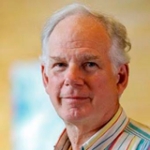 John W. Ballantine, Jr. is a specialist in energy/climate change, corporate finance, and political economy. He has taught finance, economics, and banking courses at Babson College and been a research associate at the John F. Kennedy School of Government, Harvard University. He was the Chief Financial Officer of a small start-up software company that raised over $1 million. Ballantine was also a senior consultant with the Financial Industries Division at Arthur D. Little, Inc., and a banker with Chase Manhattan Bank. He has published a number of articles about labor economics, the banking industry, financial crises, small business finance, politics/energy (Ukraine, Russia, Saudi Arabia, and Iran). He was Director of the Master of Science in Finance (MSF) program for fifteen years at Brandeis International Business where he is focused on maintaining an energy finance / sustainability program at the school.
John W. Ballantine, Jr. is a specialist in energy/climate change, corporate finance, and political economy. He has taught finance, economics, and banking courses at Babson College and been a research associate at the John F. Kennedy School of Government, Harvard University. He was the Chief Financial Officer of a small start-up software company that raised over $1 million. Ballantine was also a senior consultant with the Financial Industries Division at Arthur D. Little, Inc., and a banker with Chase Manhattan Bank. He has published a number of articles about labor economics, the banking industry, financial crises, small business finance, politics/energy (Ukraine, Russia, Saudi Arabia, and Iran). He was Director of the Master of Science in Finance (MSF) program for fifteen years at Brandeis International Business where he is focused on maintaining an energy finance / sustainability program at the school.